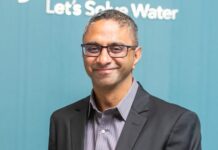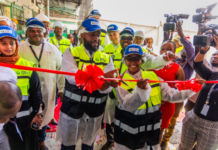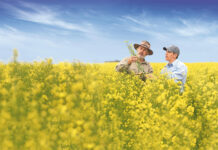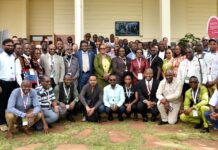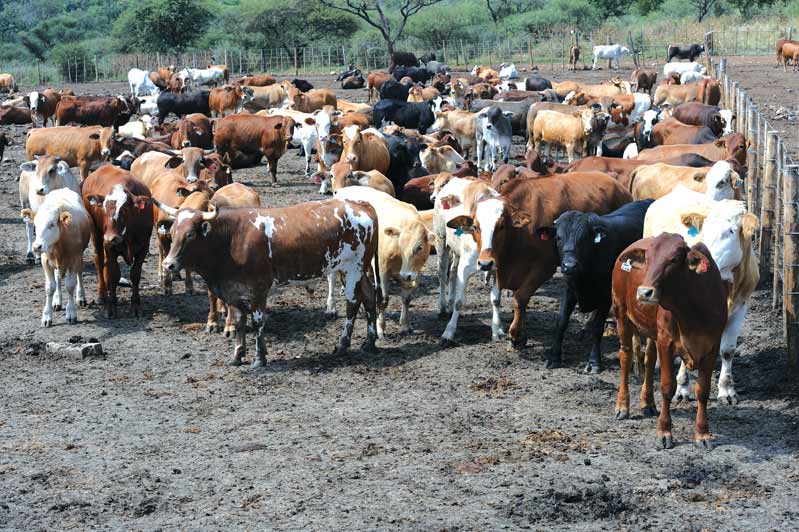By Zablon Oyugi
RedSea, a leading agri climate tech company in the Middle East and advancing commercial farming in hot climates globally is pioneering sustainable food production in harsh desert environments further reducing the carbon and water footprint by 90 per cent.
According to Ryan Lefers, co-founder and CEO at RedSea, the company is achieving this through proprietary technologies that encourage resource savings, extend growing seasons and bolster local, regional and global food yields and supply chains.
“Nearly 2 billion people live in hot and arid areas of the planet and providing a solution that helps improve the sustainability of cultivation in these regions will help to sustainably feed a global population estimated to grow to 10 billion by 2050,” said Ryan adding that the firm’s employed technologies span from the roof of a greenhouse down to the crop roots, reducing energy and water consumption.
Proprietary Technologies
RedSea’s proprietary Technologies or platforms include the iyris SecondSky transparent heat-blocking covering materials for protected agriculture; Kairos Intelligent Solutions, which includes Coretex intelligent agriculture monitors as well as a unique saline water cooling module; and Volcano Genetics resilient tomato rootstocks.
The iyris SecondSky cover blocks excess heat radiation, reducing energy usage by as much as 40% and water consumption by up to 30% (in hydroponic systems).

“This is a one for one replacement of standard covering materials including greenhouse films, nets, and hard covers such a polycarbonate,” explained Ryan.
Coretex intelligent systems on the other hand provide real-time data on climate, soil, and water conditions, allowing for precise resource management and data-driven decision-making.
“Our Volcano Genetics tomato rootstocks are powerful and resilient, increasing the stress tolerance of grafted crops.This leads to reductions in resource inputs while increasing crop outputs.”
In addition, said Ryan, Volcano rootstocks reduce the possibility of crop failure in difficult conditions, de-risking agriculture for farmers dealing with climate change and extreme weather conditions.
Individually, the solutions are transformative to the farmers that use them creating a systematic approach to efficient and sustainable agriculture.
Reducing the carbon footprint
In the face of climate change, RedSea’s technologies significantly reduce carbon footprints associated with agriculture.
While iyris SecondSky covering alone help reduce energy usage, Coretex systems enable farmers to monitor and adjust resource usage based on real-time data, minimizing waste and reducing emissions linked to resource overuse.
The use of Volcano Genetics rootstocks further reduces resource inputs per unit of yield, leading to a reduced carbon footprint per unit of food produced.
“Our intelligent monitoring systems are connected through a web-based platform, accessible via computers or handheld devices thus farmers can review live data feeds from the monitoring stations, navigate through different crop zones, and access rich data to make immediate management decisions or gain insights into crop cycles,” said Ryan.
Addressing methane emissions
While the RedSea’s technologies focus on reducing resource consumption, it’s worth noting that methane emissions are primarily associated with ruminant animals in agriculture systems.
“Our solutions do not currently involve the use of ruminant animals, which means the technologies inherently contribute to greenhouse gas reduction by cutting energy use and resource consumption in agriculture systems.”
Rootstock varieties for challenging environments
RedSea has also developed new rootstock varieties, specifically for hot and salty environments such as tomatoes that are designed to thrive in conditions that traditional crops may find challenging.
In this, the cost of production for crops like cherry tomatoes is significantly reduced. “Resource savings in water, fertigation, and energy also contribute to the overall cost reductions, higher yields, improved crop quality, and extended growing seasons further enhance revenues, positively impacting farmers’ profits.”
Expanding the reach
Ryan says that other than US, Southern Europe, Mexico, and the MENA region where RedSea technologies are already making the difference, there are plans to expand the reach.
“We see the whole world as able to benefit from our technology – even areas previously thought of as agricultural hubs – as the entire planet is now forced to grapple with the accelerating impacts of climate change,” he said.
Their mission is clear: to help growers achieve sustainable and profitable crop production and contribute to feeding the world sustainably.



